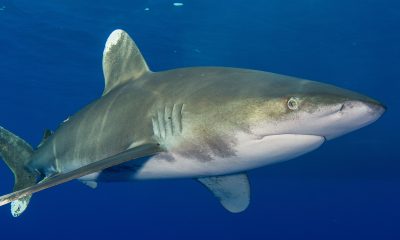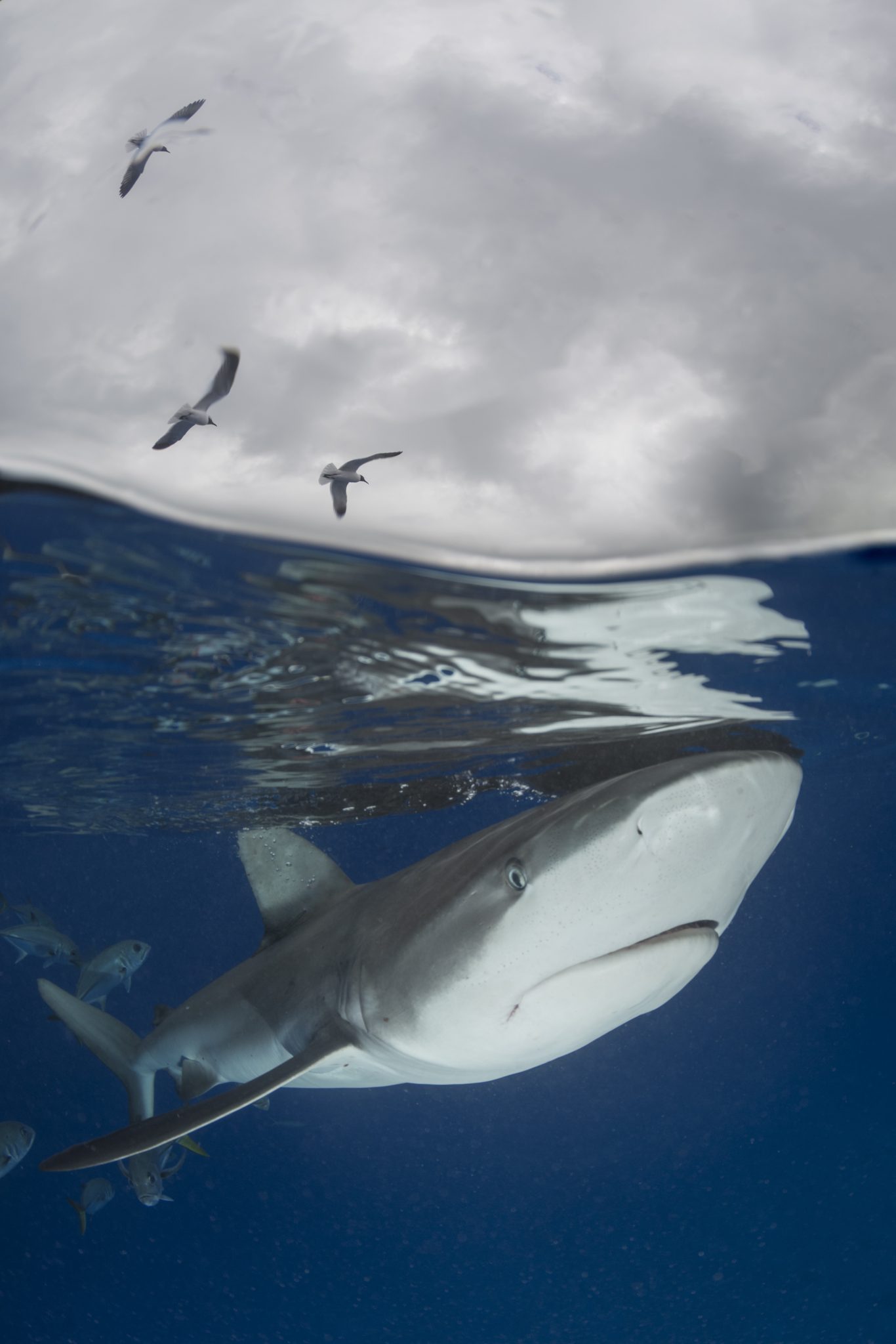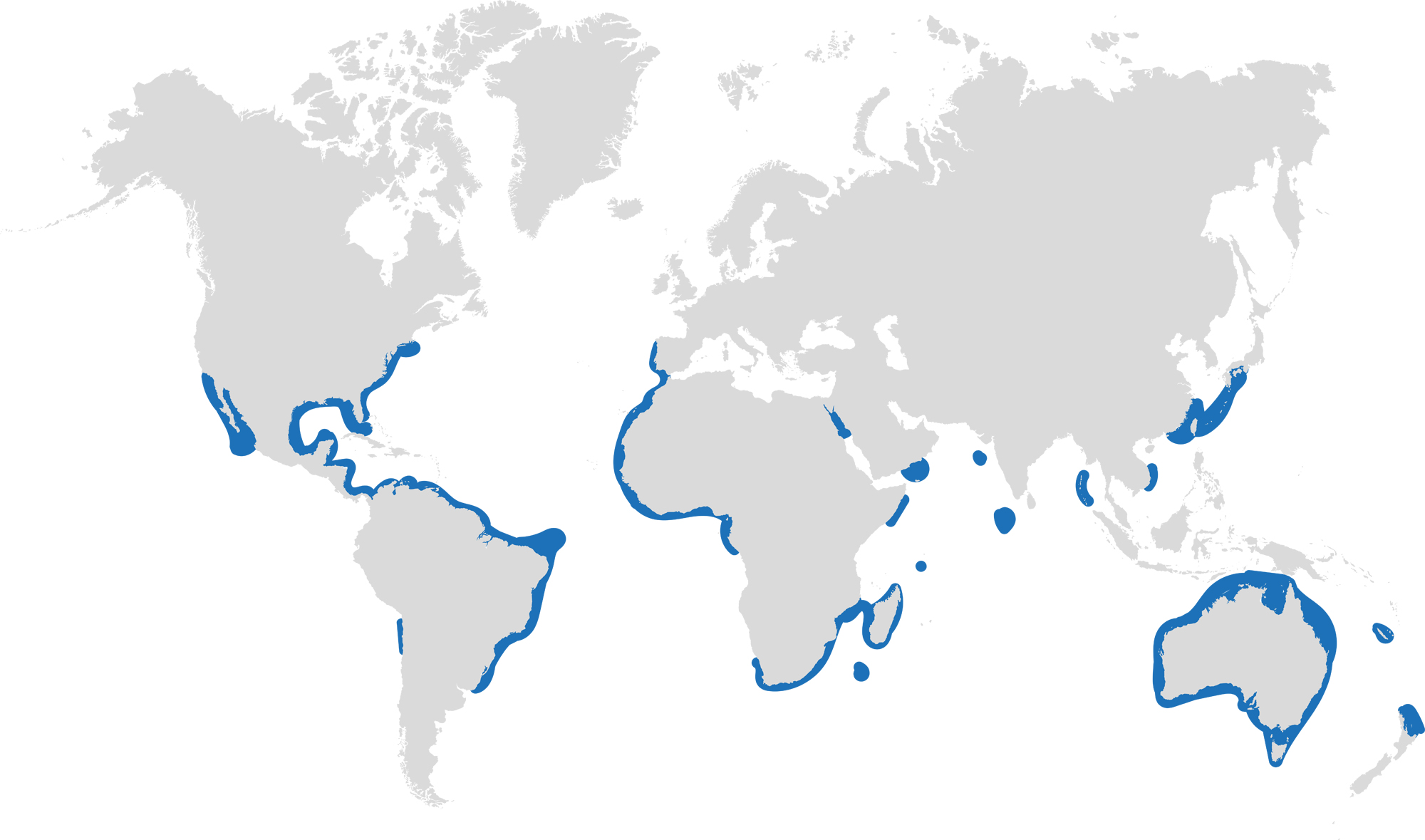Blogs
White Shark Interest Group Podcast #012 – SHARKS VS DOLPHINS with DREW SCERBO
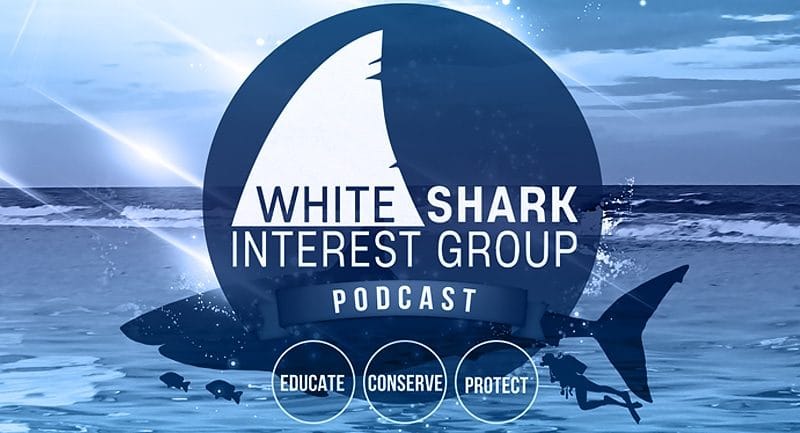
Next in an exciting podcast series from Ricardo Lacombe of the White Shark Interest Group…
Episode 12 of the White Shark Interest Group Podcast, Facebook’s’ largest White Shark specific group, covering science, conservation, news, photography, video and debate.
Do you ever hear those reports of someone in the water with sharks, who claim friendly dolphins showed up and helped send the shark away? Or reports of dolphins ramming sharks with their noses?
Is there any truth to this? Are dolphins somehow in tune with their land based mammal human friends? Or is there something else going on?
Our resident admin, and shark and dolphin expert, the mighty Drew Scerbo chats to Melissa and Ricardo about all things marine mammals and their relationships with sharks.
There is SO MUCH education in this podcast and some truly JAW DROPPING revelations about dolphins and sharks!
Click the links below to listen to the podcast series on the following audio channels:
Join the group: www.facebook.com/groups/whitesharkinterestgroup/
Instagram: www.instagram.com/whiteshark_interestgroup/
Website: www.whitesharkinterestgroup.com
Marine Life & Conservation Blogs
Creature Feature: Dusky Shark

 In this series, the Shark Trust will be sharing amazing facts about different species of sharks and what you can do to help protect them.
In this series, the Shark Trust will be sharing amazing facts about different species of sharks and what you can do to help protect them.
This month we’re taking a look at the Dusky Shark, a highly migratory species with a particularly slow growth rate and late age at maturity.
Dusky sharks are one of the largest species within the Carcharhinus genus, generally measuring 3 metres total length but able to reach up to 4.2 metres. They are grey to grey-brown on their dorsal side and their fins usually have dusky margins, with the darkest tips on the caudal fin.
Dusky Sharks can often be confused with other species of the Carcharhinus genus, particularly the Galapagos Shark (Carcharhinus galapagensis). They have very similar external morphology, so it can be easier to ID to species level by taking location into account as the two species occupy very different ecological niches – Galapagos Sharks prefer offshore seamounts and islets, whilst duskies prefer continental margins.
Hybridisation:
A 2019 study found that Dusky Sharks are hybridising with Galapagos Sharks on the Eastern Tropical Pacific (Pazmiño et al., 2019). Hybridisation is when an animal breeds with an individual of another species to produce offspring (a hybrid). Hybrids are often infertile, but this study found that the hybrids were able to produce second generation hybrids!
Long distance swimmers:
Dusky sharks are highly mobile species, undertaking long migrations to stay in warm waters throughout the winter. In the Northern Hemisphere, they head towards the poles in the summer and return southwards towards the equator in winter. The longest distance recorded was 2000 nautical miles!
Very slow to mature and reproduce:
The Dusky Shark are both targeted and caught as bycatch globally. We already know that elasmobranchs are inherently slow reproducers which means that they are heavily impacted by overfishing; it takes them so long to recover that they cannot keep up with the rate at which they are being fished. Dusky Sharks are particularly slow to reproduce – females are only ready to start breeding at roughly 20 years old, their gestation periods can last up to 22 months, and they only give birth every two to three years. This makes duskies one of the most vulnerable of all shark species.
The Dusky Shark is now listed on Appendix II of the Convention on the Conservation of Migratory Species (CMS), but further action is required to protect this important species.
Scientific Name: Carcharhinus obscurus
Family: Carcharhinidae
Maximum Size: 420cm (Total Length)
Diet: Bony fishes, cephalopods, can also eat crustaceans, and small sharks, skates and rays
Distribution: Patchy distribution in tropical and warm temperate seas; Atlantic, Indo-Pacific and Mediterranean.
Habitat: Ranges from inshore waters out to the edge of the continental shelf.
Conservation status: Endangered.
For more great shark information and conservation visit the Shark Trust Website
Images: Andy Murch
Diana A. Pazmiño, Lynne van Herderden, Colin A. Simpfendorfer, Claudia Junge, Stephen C. Donnellan, E. Mauricio Hoyos-Padilla, Clinton A.J. Duffy, Charlie Huveneers, Bronwyn M. Gillanders, Paul A. Butcher, Gregory E. Maes. (2019). Introgressive hybridisation between two widespread sharks in the east Pacific region, Molecular Phylogenetics and Evolution 136(119-127), https://doi.org/10.1016/j.ympev.2019.04.013.
Blogs
Join Pharaoh Dive Club for Red Sea Splash Family Summer Camp in August 2024

3rd AUGUST 2024 – 1 or 2 WEEK PROGRAMMES
Daily water programme with Snorkelling & Scuba Diving.
Beginners or qualified, something for all.
Leave the kids with the Splash Team for days of Excitement, Fun & Adventure!
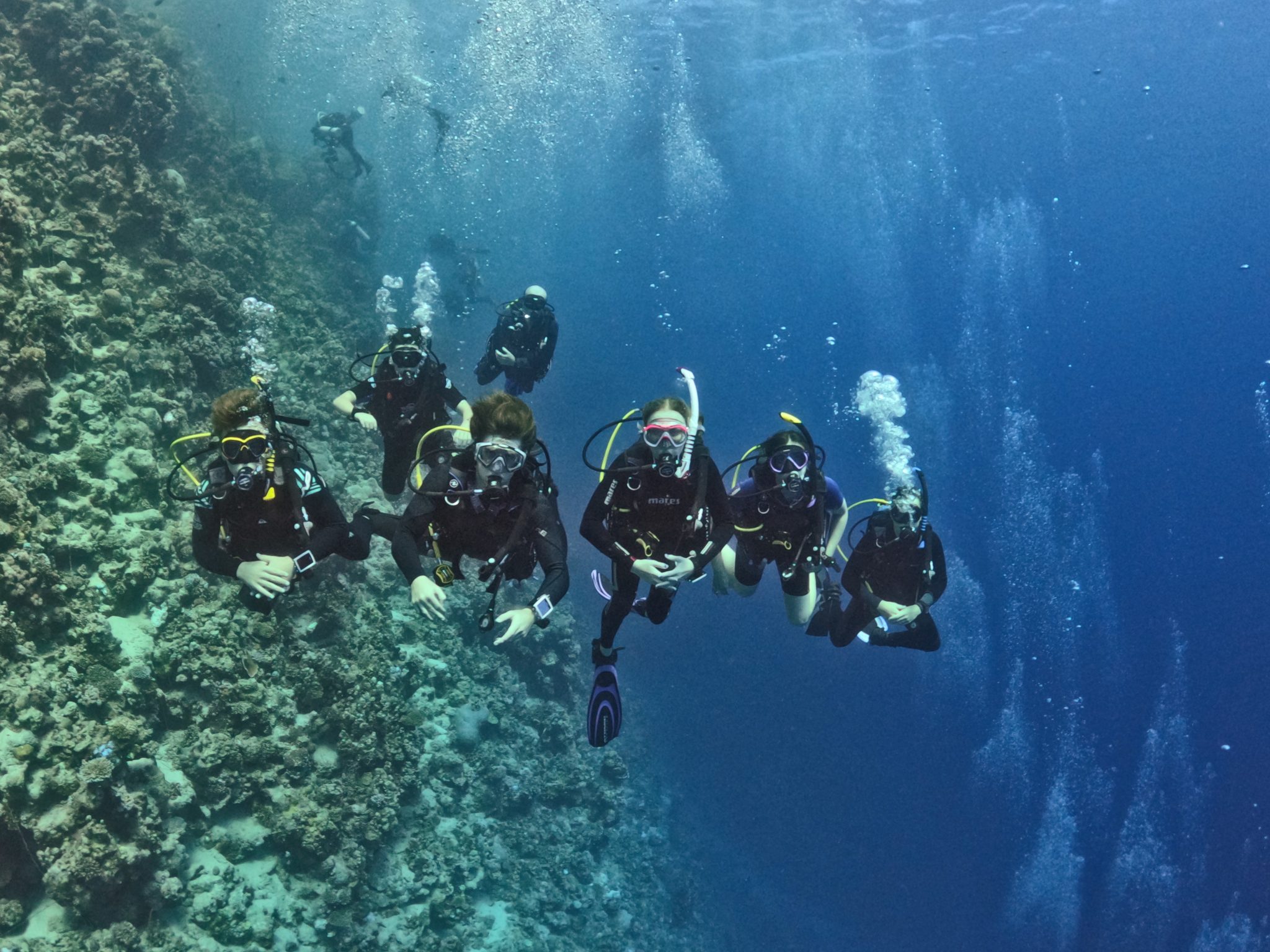
BOOK NOW: INFO@PHARAOHDIVECLUB.COM / TEL: +44 7598 329059 or +20 100 6822000
There are various options for accommodation with options for 2, 3, 4 or 5 guests.
Eco Huts provide accommodation for families of up to 4. The best option to enhance the adventure and closest to camping with basic facilities. For August we will provide central air cooling for all the Eco Huts.

Deluxe Chalets are only suitable for 2 guests. Fully air conditioned rooms with private bathroom and other facilities.

Boutique Rooms are available for families of up to 5.
Individual bespoke rooms fully air conditioned with private bathroom and other facilities.
Eco Huts: £675 per adult / £425 per child / Under 8 FREE of charge
Deluxe Chalet: £830 per adult / £505 per child / Under 8 FREE of charge
Boutique Room: £925 per adult / £550 per child / Under 8 FREE of charge
BOOK NOW: INFO@PHARAOHDIVECLUB.COM / TEL: +44 7598 329059 or +20 100 6822000
This is a truly unique opportunity to have a Family Desert Adventure totally away from it all! You will be based at the remote Roots Red Sea on the coast of the Egyptian Eastern Desert, 140km south of Hurghada city.
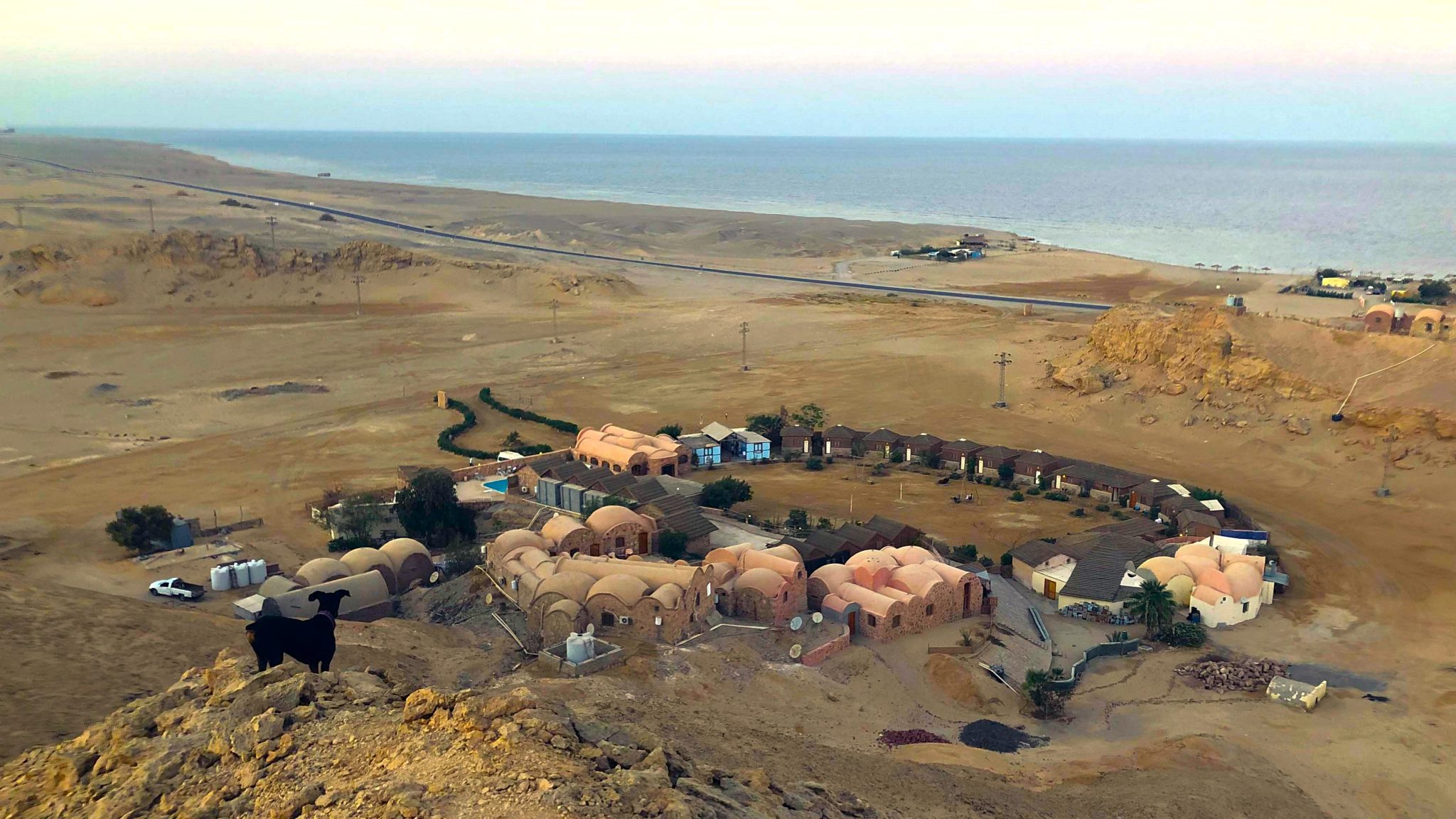
Red Sea Splash main focus is Snorkelling & Scuba Diving but that’s not all, we provide a rounded week of activities in support.
Pool& Field Games – Arts & Crafts
Marine Biology Workshops
Cultural Activities – Orienteering Adventures
Roots Red Sea have established strong links with the local communities of Hamerwain & El Quseir affording our guests to have a true taste of the local culture, SPLASH CAMP embraces this opportunity and bring in the local children to join in the fun with our adventure seekers.
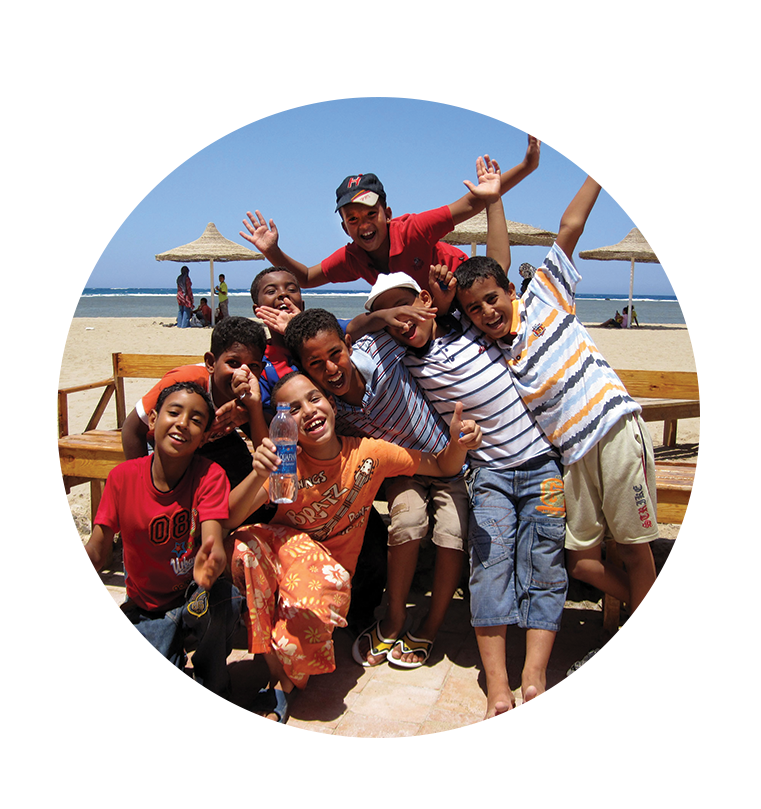
During the day, families are welcome to take part in all activities together or the kids can be left with the SPLASH CAMP team while the parents enjoy the facilities or go diving themselves!

At the end of the day, its family time while the SPLASH CAMP team take a break. For those with the energy, there are family evening activities planned a few evenings.
Open Air Movie Night – Desert Star Gazing Walk & Talk
El Quseir Evening City Tour
The second week is very special, we head off on the Big Blue for a liveaboard safari around Fury Shoals.
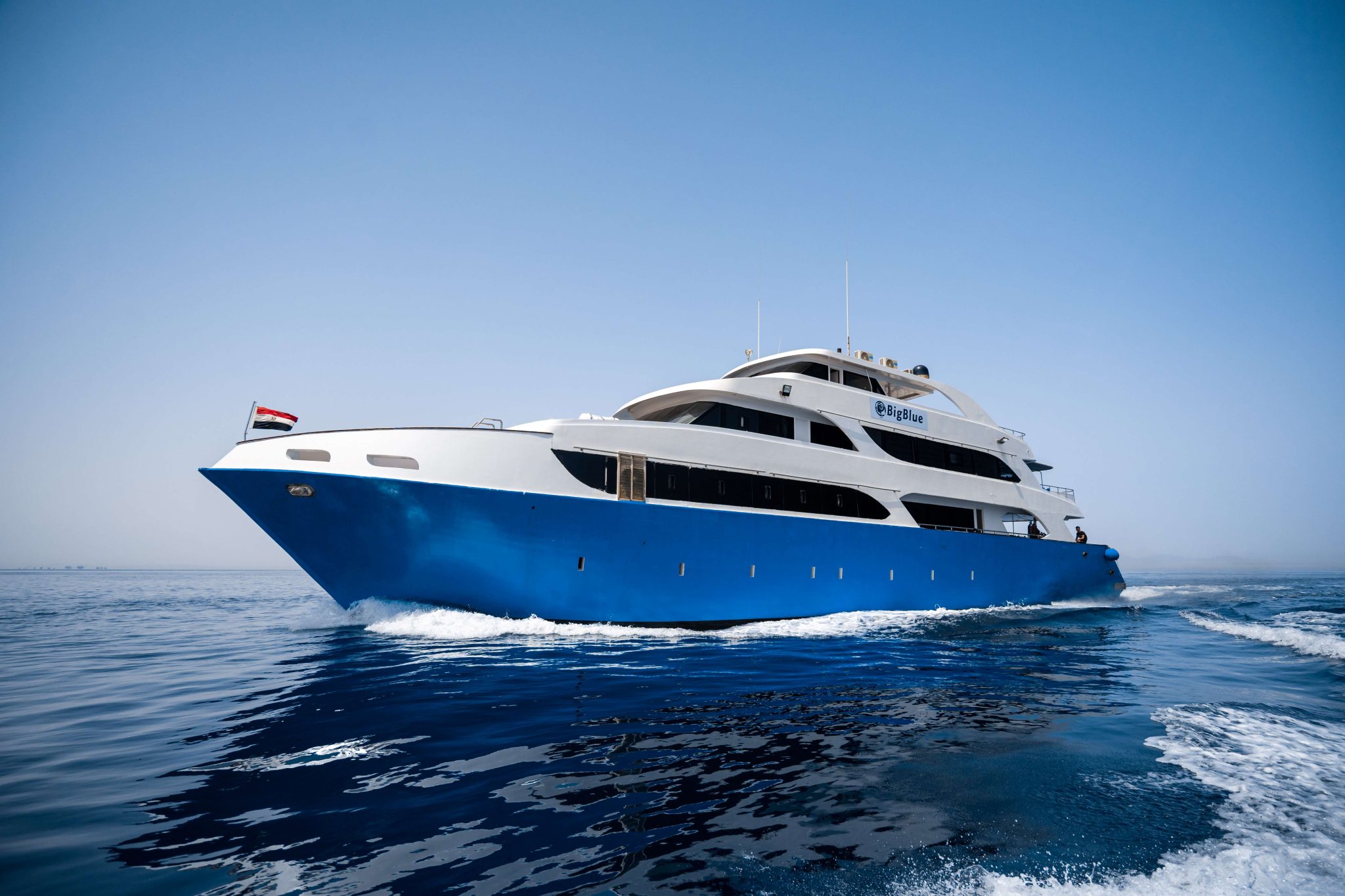
BOOK NOW: INFO@PHARAOHDIVECLUB.COM / TEL: +44 7598 329059 or +20 100 6822000
U-8 Splash Club
Sadly we can’t offer Scuba Diving to the Splash Club but we can have lots of fun Snorkelling & Free Diving!
Splash Club includes:
Certified Snorkel Course – Marine ID Games – Intro to Free Diving
Arts & Craft Sessions – Adventure trails – Cultural Playtime – Pool Games

U-12 Explorer Club
In addition to an exciting snorkelling and Free Diving Programme in the Splash Club we can take you under the water on SCUBA to a whole new world of fun and wonder. If you are under 10 your first breath under water will be as a Bubblemaker and continue with daily Seal Team Missions. From 10 we will complete a Discover Scuba Diving experience in the amazing Red Sea. Alternatively we offer a full junior certification programme to become an international qualified Scuba Diver.
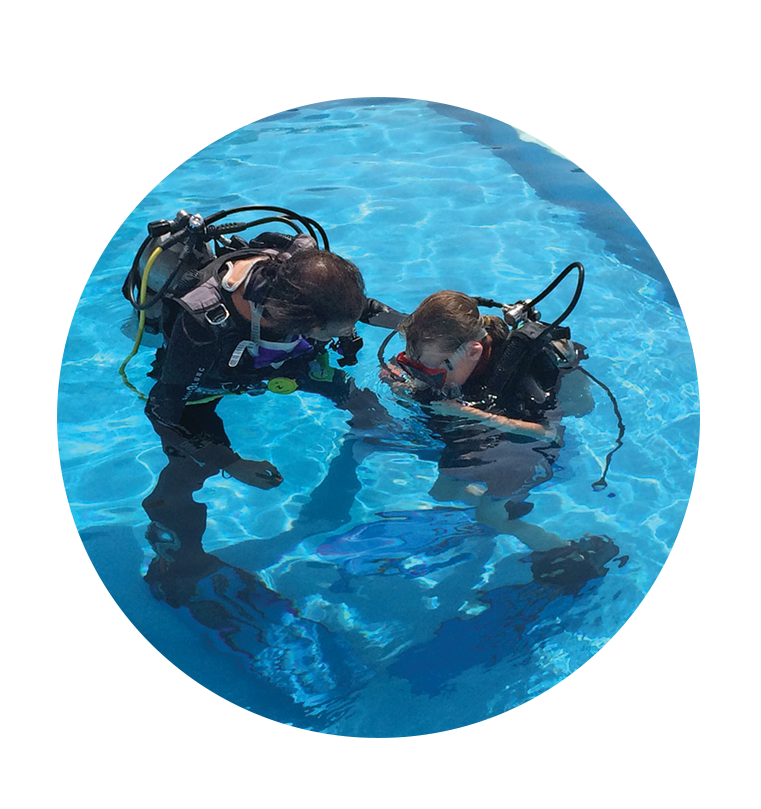
U-16 Adventurer Club
For qualified Scuba Divers regardless of age it’s the Adventurer Club and exploration of the local reefs and marine life. There will be 2 dives every day with the Open Ocean marine field station team who will introduce you to Red Sea marine life and workshops on marine research. Alternatively there are opportunities to continue your scuba diving certifications with our instructional team.
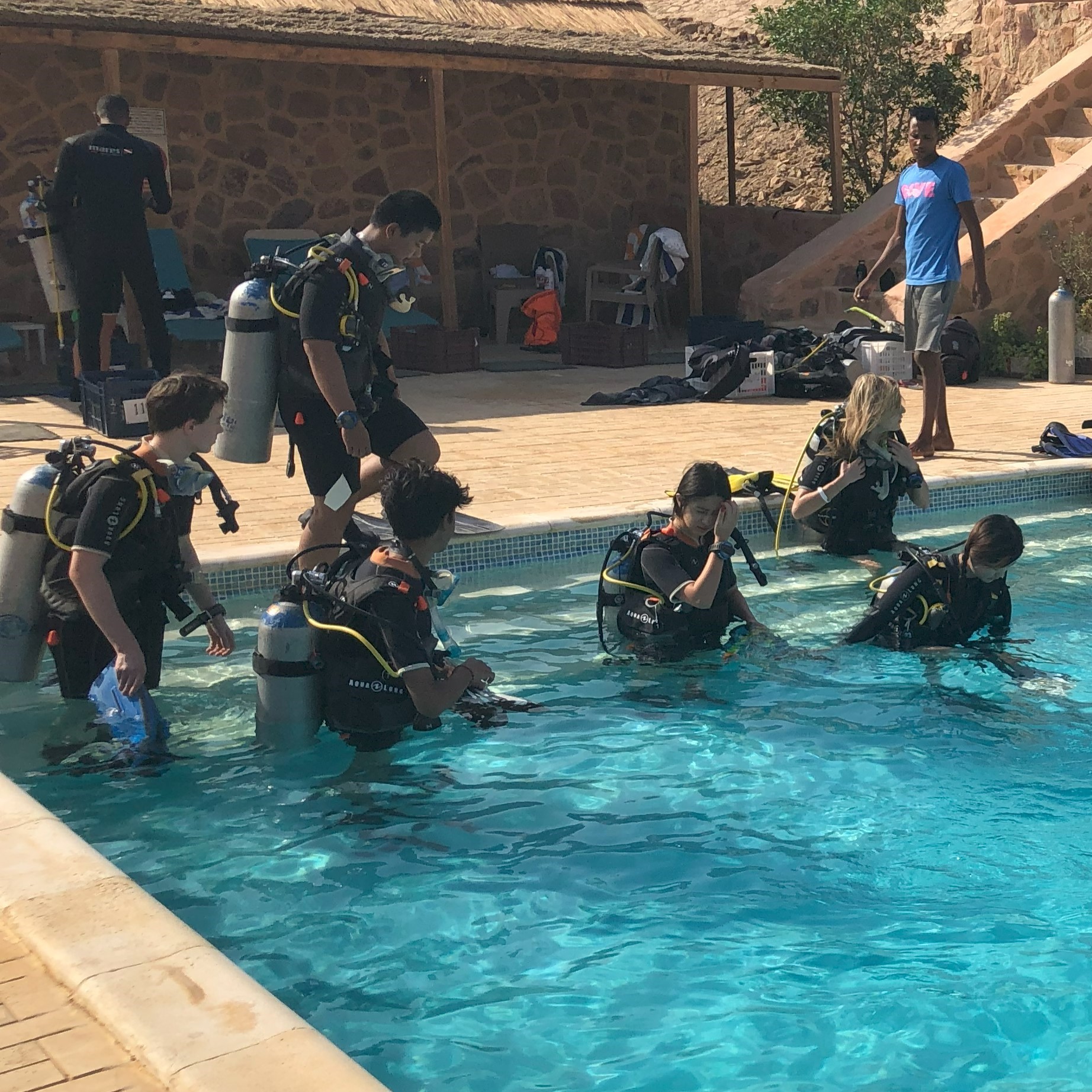
Parents are welcome to join the club activities and join the courses.
BOOK NOW: INFO@PHARAOHDIVECLUB.COM / TEL: +44 7598 329059 or +20 100 6822000
Big Blue might seem like the new kid on the block, but the team behind the highly acclaimed liveaboard is far from that. They have been running Red Sea safaris since the late 1980’s and were in fact part of the early pioneers who ventured out to the unknown on vessels that in today’s world, really shouldn’t have left the harbour! It’s that experience and the years of operating the award-winning Roots Red Sea resort which truly set Big Blue apart from the crowd!

Large lounge area, spacious sun deck and terrace deck.
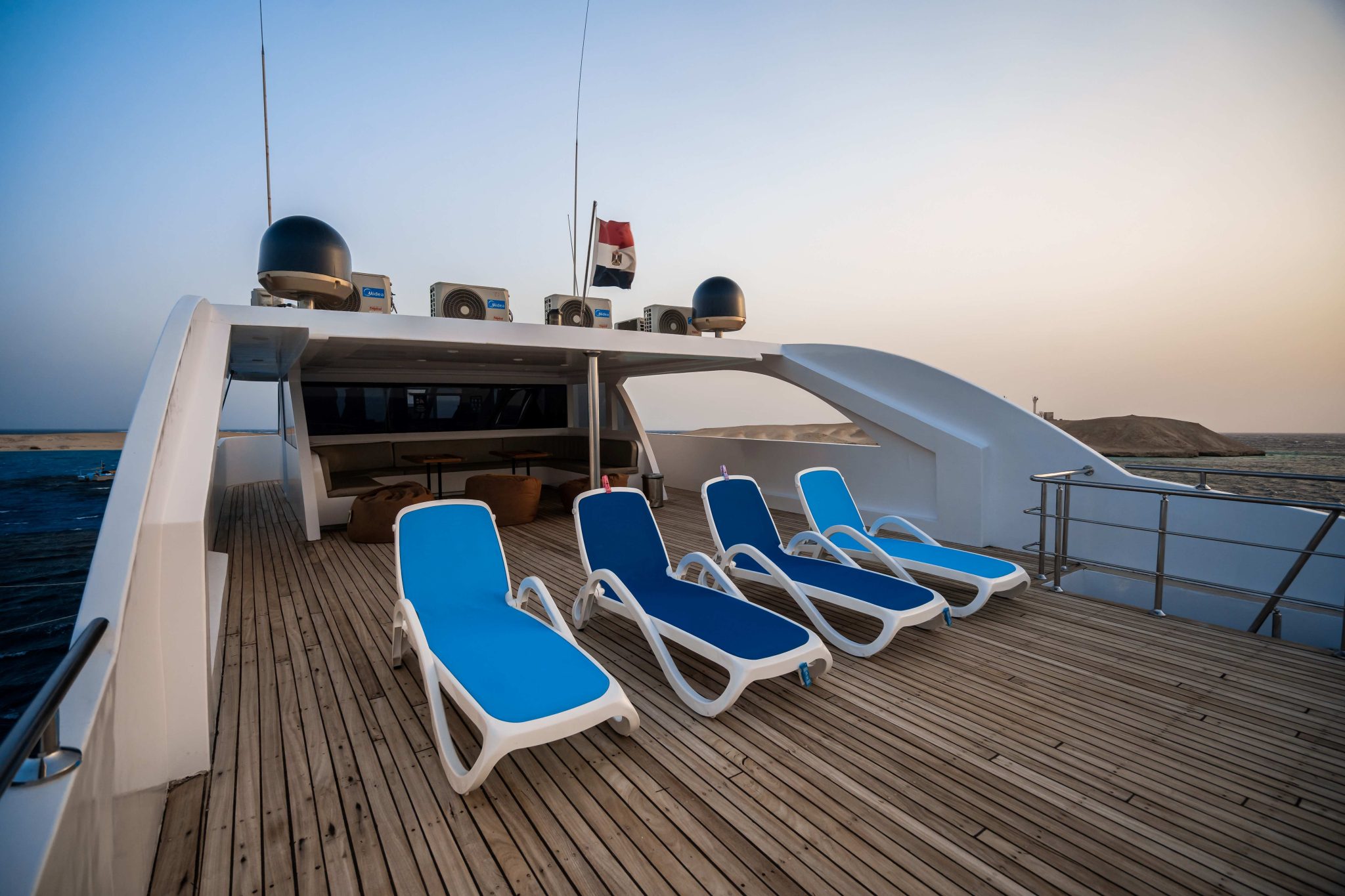
Airy restaurant with five tables with up to six chairs per table, serving a varied and delicious menu with special dietary requirements catered for.

The spacious cabins have side by side beds and a large walk in wet bathroom.

Ample dive deck for divers & snorkelers.
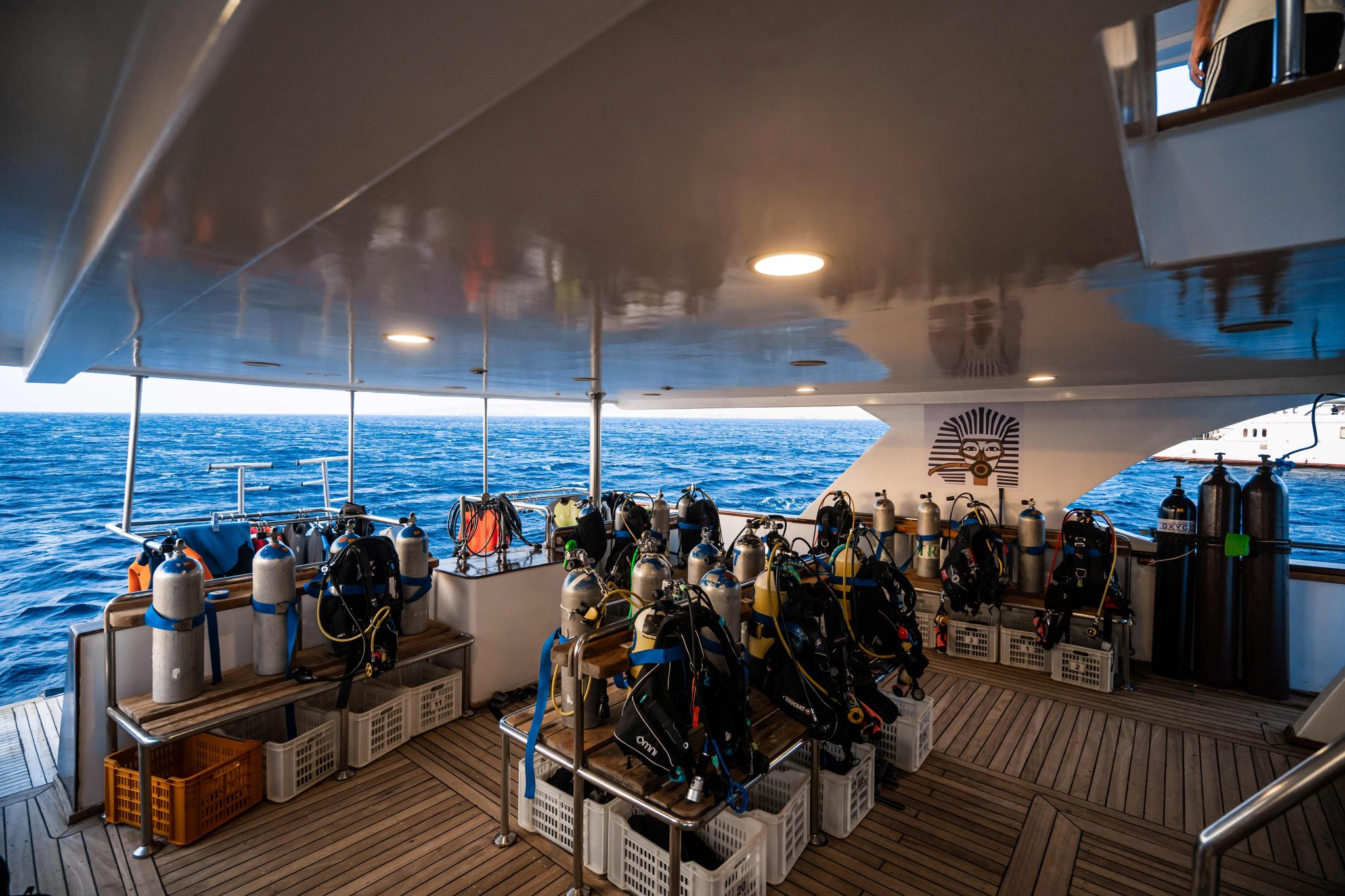
Safety is everyone’s priority, whether you are relaxing on board, swimming, snorkelling or diving.
On board Big Blue is fitted with smoke alarms, emergency lighting and a fire alarm system. The lower corridor has a full-size door fire exit at the bow and open stairs to the stern. There are evacuation plans in each room along with life jackets, glass breaker tool and a fire extinguisher.
BOOK NOW: INFO@PHARAOHDIVECLUB.COM / TEL: +44 7598 329059 or +20 100 6822000
Red Sea Splash at Fury Shoals is a very rare opportunity to get involved with marine biology expedition for children and adults. Open Ocean biologists are on board to provide fascinating and entertaining facts about the marine life you will see. The team will provide workshops on marine life identification and survey methods both of which, should you wish, you will have the chance to put into practice during your safari.
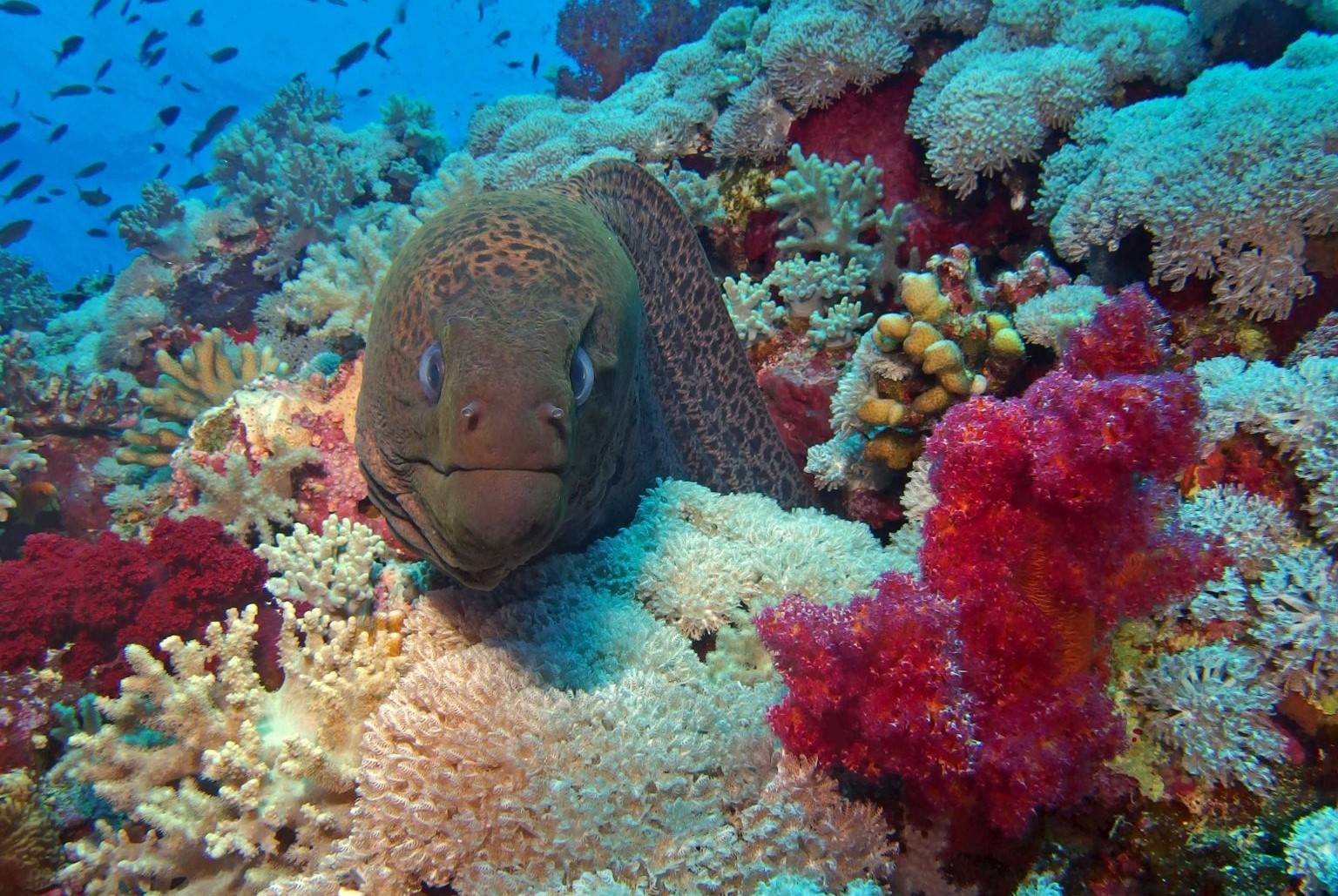
The week is open to snorkelers, scuba divers and non divers too!
Fury shoals is perfect for first time mariners as it offers plenty of protection from the weather.
We board at Port Ghaleb on Saturday evening and prepare to set sail early on Sunday morning.
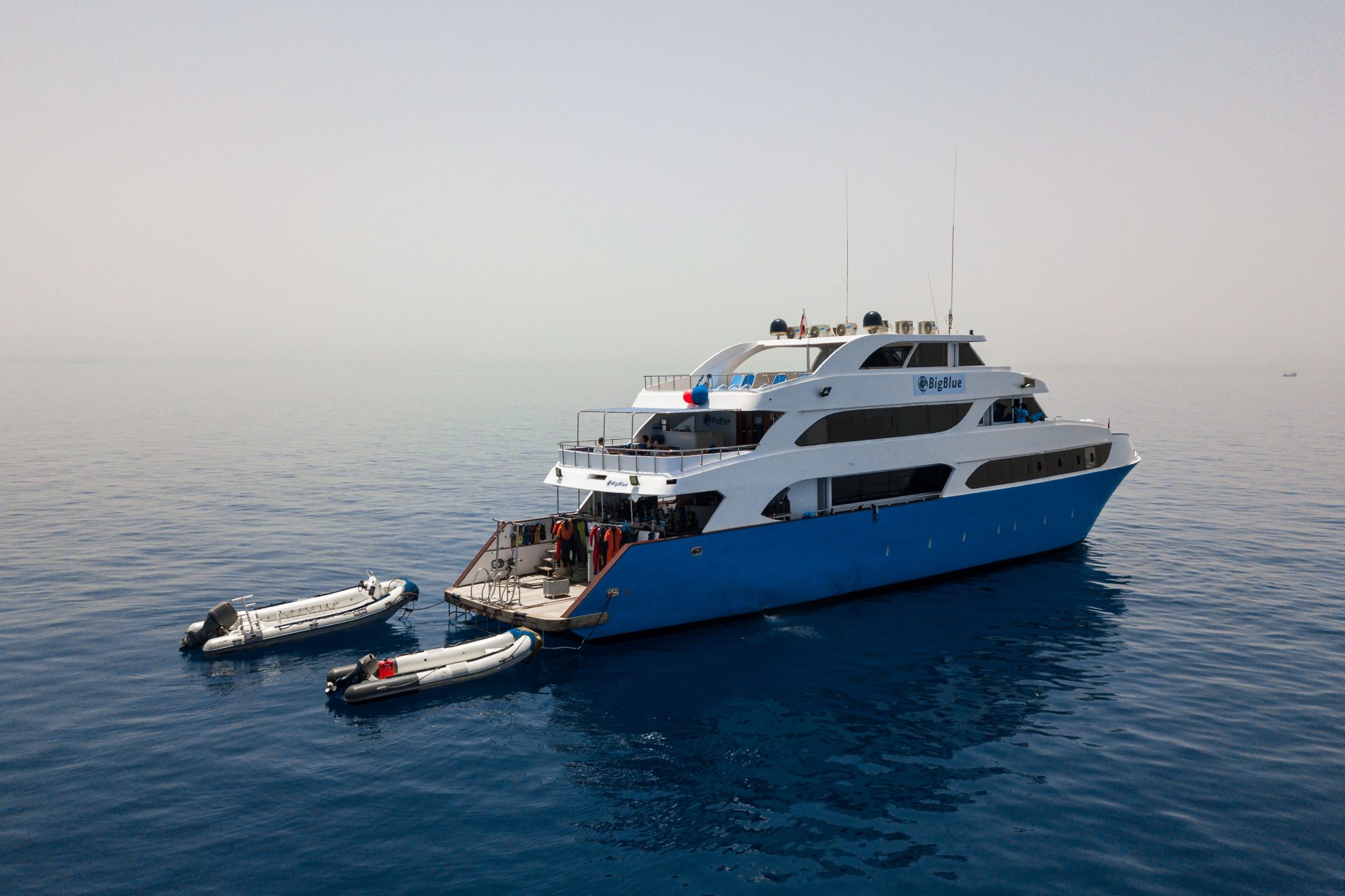
Heading south, our first day will be diving the reefs of Abu Dabbab before sailing overnight to reach our ultimate destination the Fury Shoals.
Here we will spend four days swimming, snorkelling and scuba diving amazing reefs. This includes guaranteed DOLPHIN encounters at Sataya Reef! After the last dive we haul anchor and head back to Abu Dabbab for our final two dives before disembarking our boat BIG BLUE.
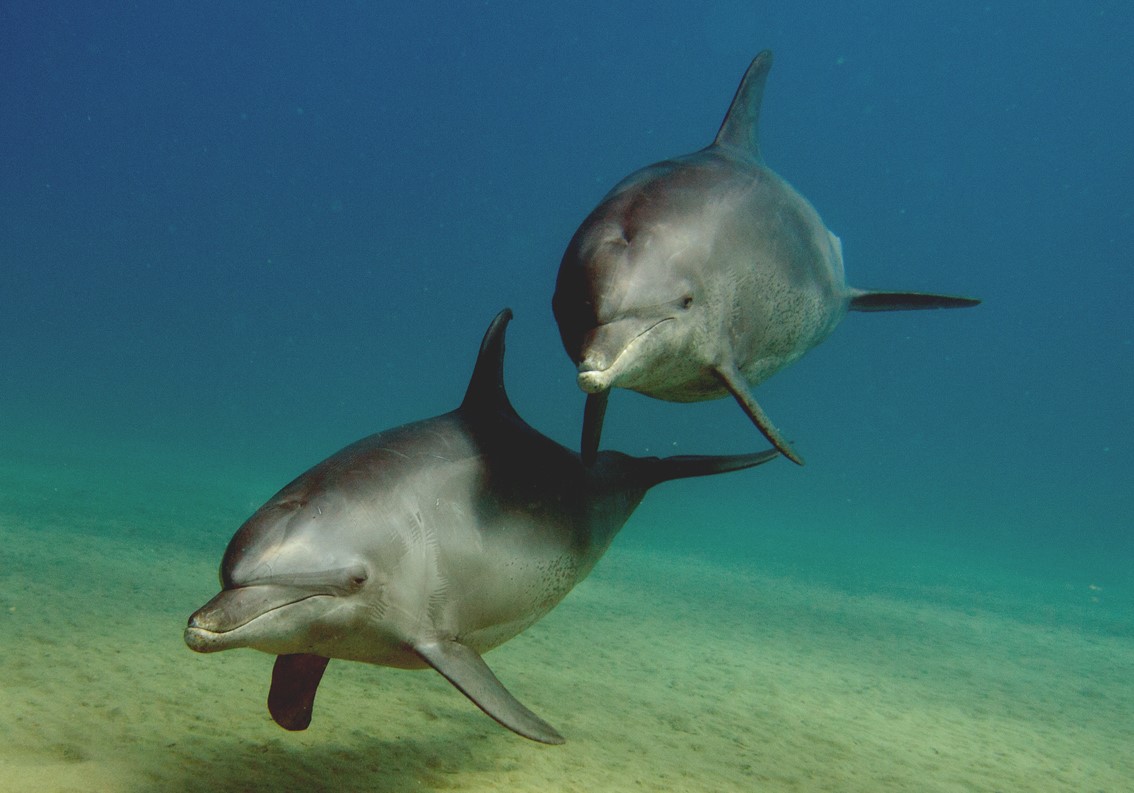
Camp Extension Cost*
Adult £650 per adult
Under 16 £350 per child
BOOK NOW: INFO@PHARAOHDIVECLUB.COM / TEL: +44 7598 329059 or +20 100 6822000
FURTHER INFORMATION – INFO@PHARAOHDIVECLUB.COM
TEL: +44 7598 329059 or +20 100 6822000
-

 News3 months ago
News3 months agoHone your underwater photography skills with Alphamarine Photography at Red Sea Diving Safari in March
-

 News2 months ago
News2 months agoCapturing Critters in Lembeh Underwater Photography Workshop 2024: Event Roundup
-

 Marine Life & Conservation Blogs2 months ago
Marine Life & Conservation Blogs2 months agoCreature Feature: Swell Sharks
-

 Blogs2 months ago
Blogs2 months agoMurex Resorts: Passport to Paradise!
-

 Blogs2 months ago
Blogs2 months agoDiver Discovering Whale Skeletons Beneath Ice Judged World’s Best Underwater Photograph
-

 Gear News3 months ago
Gear News3 months agoBare X-Mission Drysuit: Ideal for Both Technical and Recreational Divers
-

 Gear Reviews2 months ago
Gear Reviews2 months agoGear Review: Oceanic+ Dive Housing for iPhone
-

 Marine Life & Conservation2 months ago
Marine Life & Conservation2 months agoSave the Manatee Club launches brand new webcams at Silver Springs State Park, Florida









